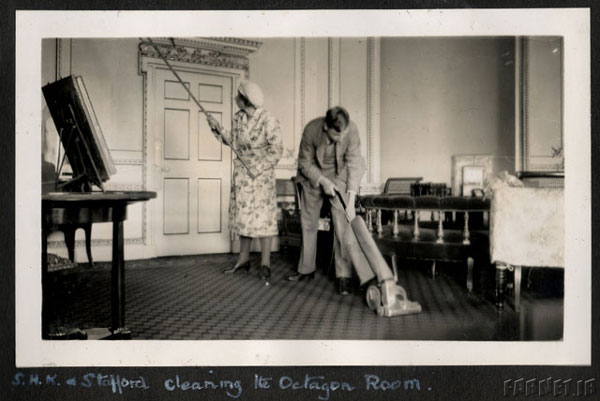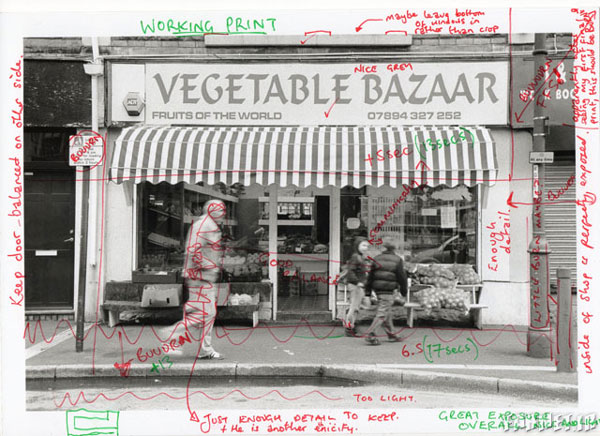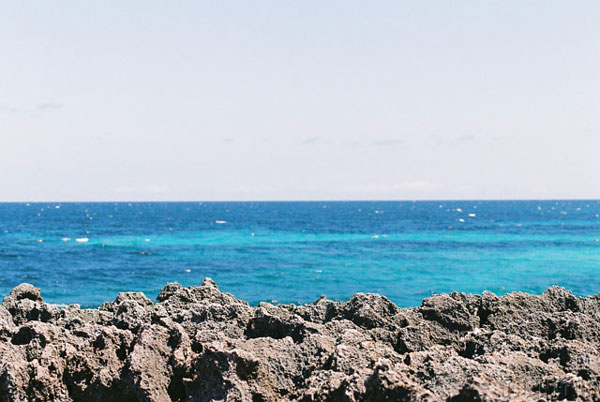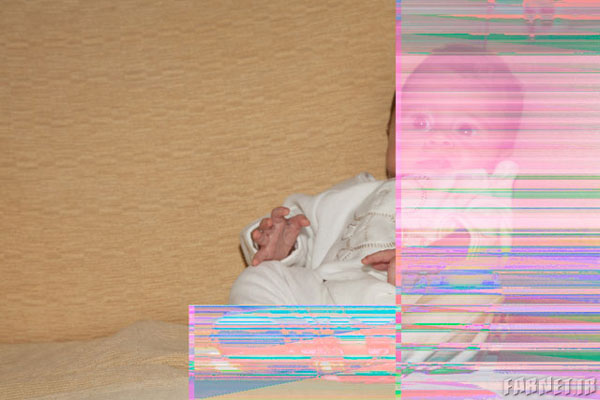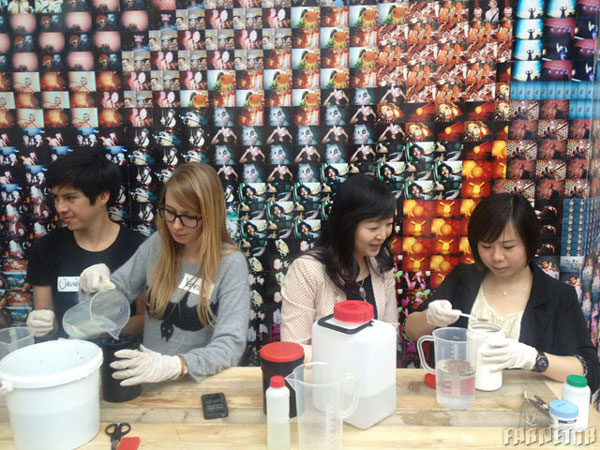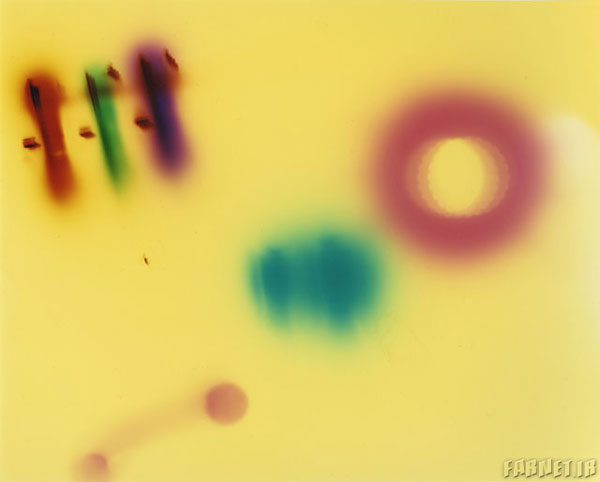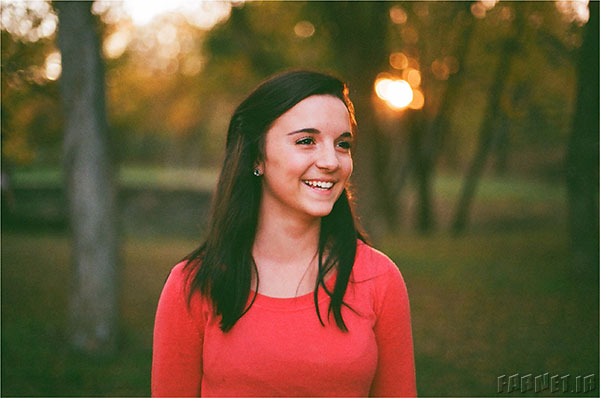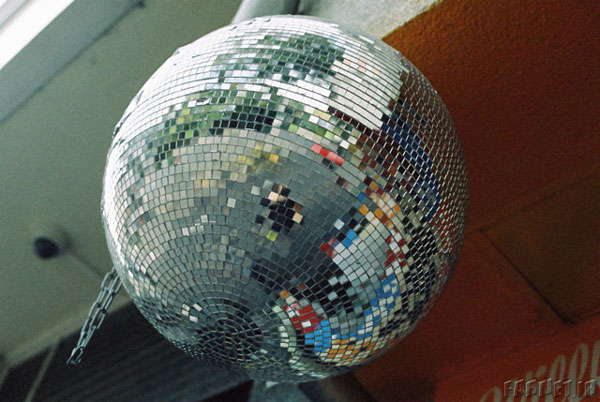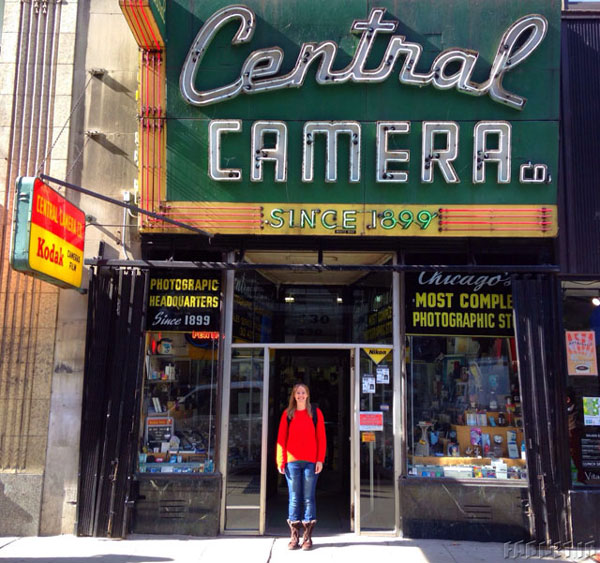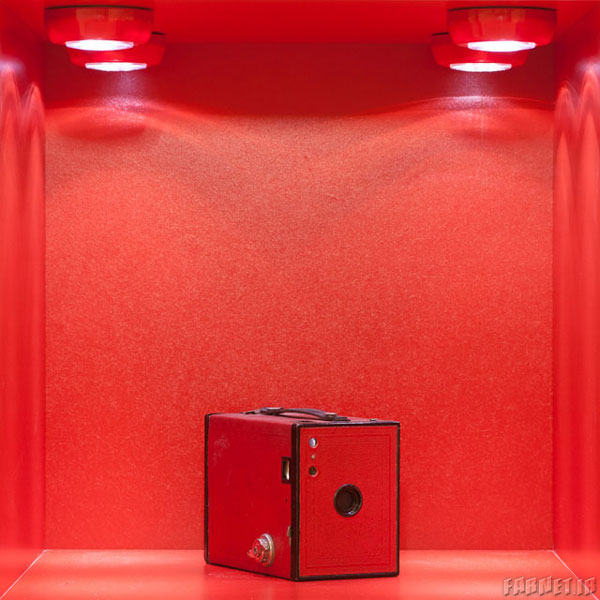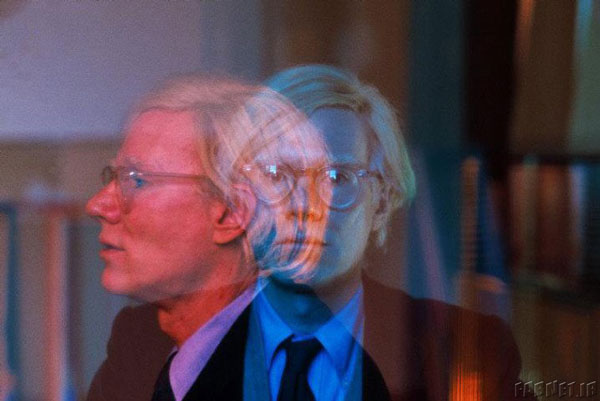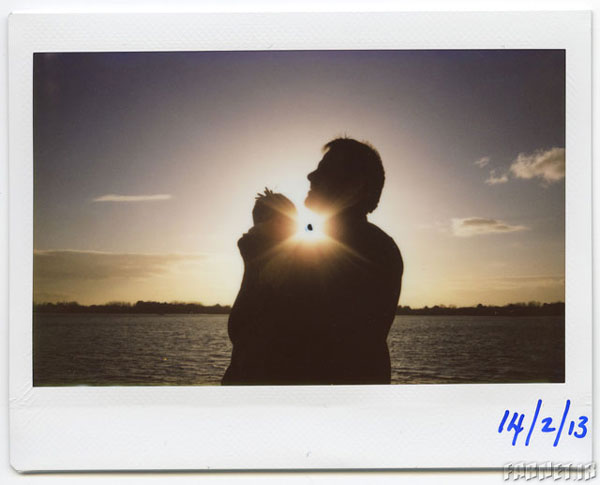مرحله 4: سرکوب لبه های غیر حداکثر
آخرین مرحله، پیدا کردن لبه های ضعیف که موازی با لبه های قوی هستند و از بین بردن آنهاست. این عمل، با بررسی پیکسل های عمود بر یک پیکسل لبه خاص و حذف لبه های غیر حداکثرانجام شده است. کد مورد استفاده بسیار مشابه کد ردیابی لبه است.
</pre>
<pre>#include "stdafx.h"
#include "tripod.h"
#include "tripodDlg.h"
#include "LVServerDefs.h"
#include "math.h"
#include <fstream>
#include <string>
#include <iostream>
#include <stdlib.h>
#include <stdio.h>
#ifdef _DEBUG
#define new DEBUG_NEW
#undef THIS_FILE
static char THIS_FILE[] = __FILE__;
#endif
using namespace std;
/////////////////////////////////////////////////////////////////////////////
// CAboutDlg dialog used for App About
class CAboutDlg : public CDialog
{
public:
CAboutDlg();
// Dialog Data
//{{AFX_DATA(CAboutDlg)
enum { IDD = IDD_ABOUTBOX };
//}}AFX_DATA
// ClassWizard generated virtual function overrides
//{{AFX_VIRTUAL(CAboutDlg)
protected:
virtual void DoDataExchange(CDataExchange* pDX); // DDX/DDV support
//}}AFX_VIRTUAL
// Implementation
protected:
//{{AFX_MSG(CAboutDlg)
//}}AFX_MSG
DECLARE_MESSAGE_MAP()
};
CAboutDlg::CAboutDlg() : CDialog(CAboutDlg::IDD)
{
//{{AFX_DATA_INIT(CAboutDlg)
//}}AFX_DATA_INIT
}
void CAboutDlg::DoDataExchange(CDataExchange* pDX)
{
CDialog::DoDataExchange(pDX);
//{{AFX_DATA_MAP(CAboutDlg)
//}}AFX_DATA_MAP
}
BEGIN_MESSAGE_MAP(CAboutDlg, CDialog)
//{{AFX_MSG_MAP(CAboutDlg)
// No message handlers
//}}AFX_MSG_MAP
END_MESSAGE_MAP()
/////////////////////////////////////////////////////////////////////////////
// CTripodDlg dialog
CTripodDlg::CTripodDlg(CWnd* pParent /*=NULL*/)
: CDialog(CTripodDlg::IDD, pParent)
{
//{{AFX_DATA_INIT(CTripodDlg)
// NOTE: the ClassWizard will add member initialization here
//}}AFX_DATA_INIT
// Note that LoadIcon does not require a subsequent DestroyIcon in Win32
m_hIcon = AfxGetApp()->LoadIcon(IDR_MAINFRAME);
//////////////// Set destination BMP to NULL first
m_destinationBitmapInfoHeader = NULL;
}
////////////////////// Additional generic functions
static unsigned PixelBytes(int w, int bpp)
{
return (w * bpp + 7) / 8;
}
static unsigned DibRowSize(int w, int bpp)
{
return (w * bpp + 31) / 32 * 4;
}
static unsigned DibRowSize(LPBITMAPINFOHEADER pbi)
{
return DibRowSize(pbi->biWidth, pbi->biBitCount);
}
static unsigned DibRowPadding(int w, int bpp)
{
return DibRowSize(w, bpp) - PixelBytes(w, bpp);
}
static unsigned DibRowPadding(LPBITMAPINFOHEADER pbi)
{
return DibRowPadding(pbi->biWidth, pbi->biBitCount);
}
static unsigned DibImageSize(int w, int h, int bpp)
{
return h * DibRowSize(w, bpp);
}
static size_t DibSize(int w, int h, int bpp)
{
return sizeof (BITMAPINFOHEADER) + DibImageSize(w, h, bpp);
}
/////////////////////// end of generic functions
void CTripodDlg::DoDataExchange(CDataExchange* pDX)
{
CDialog::DoDataExchange(pDX);
//{{AFX_DATA_MAP(CTripodDlg)
DDX_Control(pDX, IDC_PROCESSEDVIEW, m_cVideoProcessedView);
DDX_Control(pDX, IDC_UNPROCESSEDVIEW, m_cVideoUnprocessedView);
//}}AFX_DATA_MAP
}
BEGIN_MESSAGE_MAP(CTripodDlg, CDialog)
//{{AFX_MSG_MAP(CTripodDlg)
ON_WM_SYSCOMMAND()
ON_WM_PAINT()
ON_WM_QUERYDRAGICON()
ON_BN_CLICKED(IDEXIT, OnExit)
//}}AFX_MSG_MAP
END_MESSAGE_MAP()
/////////////////////////////////////////////////////////////////////////////
// CTripodDlg message handlers
BOOL CTripodDlg::OnInitDialog()
{
CDialog::OnInitDialog();
// Add "About..." menu item to system menu.
// IDM_ABOUTBOX must be in the system command range.
ASSERT((IDM_ABOUTBOX & 0xFFF0) == IDM_ABOUTBOX);
ASSERT(IDM_ABOUTBOX < 0xF000);
CMenu* pSysMenu = GetSystemMenu(FALSE);
if (pSysMenu != NULL)
{
CString strAboutMenu;
strAboutMenu.LoadString(IDS_ABOUTBOX);
if (!strAboutMenu.IsEmpty())
{
pSysMenu->AppendMenu(MF_SEPARATOR);
pSysMenu->AppendMenu(MF_STRING, IDM_ABOUTBOX, strAboutMenu);
}
}
// Set the icon for this dialog. The framework does this automatically
// when the application's main window is not a dialog
SetIcon(m_hIcon, TRUE); // Set big icon
SetIcon(m_hIcon, FALSE); // Set small icon
// TODO: Add extra initialization here
// For Unprocessed view videoportal (top one)
char sRegUnprocessedView[] = "HKEY_LOCAL_MACHINE\\Software\\UnprocessedView";
m_cVideoUnprocessedView.PrepareControl("UnprocessedView", sRegUnprocessedView, 0 );
m_cVideoUnprocessedView.EnableUIElements(UIELEMENT_STATUSBAR,0,TRUE);
m_cVideoUnprocessedView.ConnectCamera2();
m_cVideoUnprocessedView.SetEnablePreview(TRUE);
// For binary view videoportal (bottom one)
char sRegProcessedView[] = "HKEY_LOCAL_MACHINE\\Software\\ProcessedView";
m_cVideoProcessedView.PrepareControl("ProcessedView", sRegProcessedView, 0 );
m_cVideoProcessedView.EnableUIElements(UIELEMENT_STATUSBAR,0,TRUE);
m_cVideoProcessedView.ConnectCamera2();
m_cVideoProcessedView.SetEnablePreview(TRUE);
// Initialize the size of binary videoportal
m_cVideoProcessedView.SetPreviewMaxHeight(240);
m_cVideoProcessedView.SetPreviewMaxWidth(320);
// Uncomment if you wish to fix the live videoportal's size
// m_cVideoUnprocessedView.SetPreviewMaxHeight(240);
// m_cVideoUnprocessedView.SetPreviewMaxWidth(320);
// Find the screen coodinates of the binary videoportal
m_cVideoProcessedView.GetWindowRect(m_rectForProcessedView);
ScreenToClient(m_rectForProcessedView);
allocateDib(CSize(320, 240));
// Start grabbing frame data for Procssed videoportal (bottom one)
m_cVideoProcessedView.StartVideoHook(0);
return TRUE; // return TRUE unless you set the focus to a control
}
void CTripodDlg::OnSysCommand(UINT nID, LPARAM lParam)
{
if ((nID & 0xFFF0) == IDM_ABOUTBOX)
{
CAboutDlg dlgAbout;
dlgAbout.DoModal();
}
else
{
CDialog::OnSysCommand(nID, lParam);
}
}
// If you add a minimize button to your dialog, you will need the code below
// to draw the icon. For MFC applications using the document/view model,
// this is automatically done for you by the framework.
void CTripodDlg::OnPaint()
{
if (IsIconic())
{
CPaintDC dc(this); // device context for painting
SendMessage(WM_ICONERASEBKGND, (WPARAM) dc.GetSafeHdc(), 0);
// Center icon in client rectangle
int cxIcon = GetSystemMetrics(SM_CXICON);
int cyIcon = GetSystemMetrics(SM_CYICON);
CRect rect;
GetClientRect(&rect);
int x = (rect.Width() - cxIcon + 1) / 2;
int y = (rect.Height() - cyIcon + 1) / 2;
// Draw the icon
dc.DrawIcon(x, y, m_hIcon);
}
else
{
CDialog::OnPaint();
}
}
// The system calls this to obtain the cursor to display while the user drags
// the minimized window.
HCURSOR CTripodDlg::OnQueryDragIcon()
{
return (HCURSOR) m_hIcon;
}
void CTripodDlg::OnExit()
{
// TODO: Add your control notification handler code here
// Kill live view videoportal (top one)
m_cVideoUnprocessedView.StopVideoHook(0);
m_cVideoUnprocessedView.DisconnectCamera();
// Kill binary view videoportal (bottom one)
m_cVideoProcessedView.StopVideoHook(0);
m_cVideoProcessedView.DisconnectCamera();
// Kill program
DestroyWindow();
}
BEGIN_EVENTSINK_MAP(CTripodDlg, CDialog)
//{{AFX_EVENTSINK_MAP(CTripodDlg)
ON_EVENT(CTripodDlg, IDC_PROCESSEDVIEW, 1 /* PortalNotification */, OnPortalNotificationProcessedview, VTS_I4 VTS_I4 VTS_I4 VTS_I4)
//}}AFX_EVENTSINK_MAP
END_EVENTSINK_MAP()
void CTripodDlg::OnPortalNotificationProcessedview(long lMsg, long lParam1, long lParam2, long lParam3)
{
// TODO: Add your control notification handler code here
// This function is called at the camera's frame rate
#define NOTIFICATIONMSG_VIDEOHOOK 10
// Declare some useful variables
// QCSDKMFC.pdf (Quickcam MFC documentation) p. 103 explains the variables lParam1, lParam2, lParam3 too
LPBITMAPINFOHEADER lpBitmapInfoHeader; // Frame's info header contains info like width and height
LPBYTE lpBitmapPixelData; // This pointer-to-long will point to the start of the frame's pixel data
unsigned long lTimeStamp; // Time when frame was grabbed
switch(lMsg) {
case NOTIFICATIONMSG_VIDEOHOOK:
{
lpBitmapInfoHeader = (LPBITMAPINFOHEADER) lParam1;
lpBitmapPixelData = (LPBYTE) lParam2;
lTimeStamp = (unsigned long) lParam3;
grayScaleTheFrameData(lpBitmapInfoHeader, lpBitmapPixelData);
doMyImageProcessing(lpBitmapInfoHeader); // Place where you'd add your image processing code
displayMyResults(lpBitmapInfoHeader);
}
break;
default:
break;
}
}
void CTripodDlg::allocateDib(CSize sz)
{
// Purpose: allocate information for a device independent bitmap (DIB)
// Called from OnInitVideo
if(m_destinationBitmapInfoHeader) {
free(m_destinationBitmapInfoHeader);
m_destinationBitmapInfoHeader = NULL;
}
if(sz.cx | sz.cy) {
m_destinationBitmapInfoHeader = (LPBITMAPINFOHEADER)malloc(DibSize(sz.cx, sz.cy, 24));
ASSERT(m_destinationBitmapInfoHeader);
m_destinationBitmapInfoHeader->biSize = sizeof(BITMAPINFOHEADER);
m_destinationBitmapInfoHeader->biWidth = sz.cx;
m_destinationBitmapInfoHeader->biHeight = sz.cy;
m_destinationBitmapInfoHeader->biPlanes = 1;
m_destinationBitmapInfoHeader->biBitCount = 24;
m_destinationBitmapInfoHeader->biCompression = 0;
m_destinationBitmapInfoHeader->biSizeImage = DibImageSize(sz.cx, sz.cy, 24);
m_destinationBitmapInfoHeader->biXPelsPerMeter = 0;
m_destinationBitmapInfoHeader->biYPelsPerMeter = 0;
m_destinationBitmapInfoHeader->biClrImportant = 0;
m_destinationBitmapInfoHeader->biClrUsed = 0;
}
}
void CTripodDlg::displayMyResults(LPBITMAPINFOHEADER lpThisBitmapInfoHeader)
{
// displayMyResults: Displays results of doMyImageProcessing() in the videoport
// Notes: StretchDIBits stretches a device-independent bitmap to the appropriate size
CDC *pDC; // Device context to display bitmap data
pDC = GetDC();
int nOldMode = SetStretchBltMode(pDC->GetSafeHdc(),COLORONCOLOR);
StretchDIBits(
pDC->GetSafeHdc(),
m_rectForProcessedView.left, // videoportal left-most coordinate
m_rectForProcessedView.top, // videoportal top-most coordinate
m_rectForProcessedView.Width(), // videoportal width
m_rectForProcessedView.Height(), // videoportal height
0, // Row position to display bitmap in videoportal
0, // Col position to display bitmap in videoportal
lpThisBitmapInfoHeader->biWidth, // m_destinationBmp's number of columns
lpThisBitmapInfoHeader->biHeight, // m_destinationBmp's number of rows
m_destinationBmp, // The bitmap to display; use the one resulting from doMyImageProcessing
(BITMAPINFO*)m_destinationBitmapInfoHeader, // The bitmap's header info e.g. width, height, number of bits etc
DIB_RGB_COLORS, // Use default 24-bit color table
SRCCOPY // Just display
);
SetStretchBltMode(pDC->GetSafeHdc(),nOldMode);
ReleaseDC(pDC);
// Note: 04/24/02 - Added the following:
// Christopher Wagner cwagner@fas.harvard.edu noticed that memory wasn't being freed
// Recall OnPortalNotificationProcessedview, which gets called everytime
// a frame of data arrives, performs 3 steps:
// (1) grayScaleTheFrameData - which mallocs m_destinationBmp
// (2) doMyImageProcesing
// (3) displayMyResults - which we're in now
// Since we're finished with the memory we malloc'ed for m_destinationBmp
// we should free it:
free(m_destinationBmp);
// End of adds
}
void CTripodDlg::grayScaleTheFrameData(LPBITMAPINFOHEADER lpThisBitmapInfoHeader, LPBYTE lpThisBitmapPixelData)
{
// grayScaleTheFrameData: Called by CTripodDlg::OnPortalNotificationBinaryview
// Task: Read current frame pixel data and computes a grayscale version
unsigned int W, H; // Width and Height of current frame [pixels]
BYTE *sourceBmp; // Pointer to current frame of data
unsigned int row, col;
unsigned long i;
BYTE grayValue;
BYTE redValue;
BYTE greenValue;
BYTE blueValue;
W = lpThisBitmapInfoHeader->biWidth; // biWidth: number of columns
H = lpThisBitmapInfoHeader->biHeight; // biHeight: number of rows
// Store pixel data in row-column vector format
// Recall that each pixel requires 3 bytes (red, blue and green bytes)
// m_destinationBmp is a protected member and declared in binarizeDlg.h
m_destinationBmp = (BYTE*)malloc(H*3*W*sizeof(BYTE));
// Point to the current frame's pixel data
sourceBmp = lpThisBitmapPixelData;
for (row = 0; row < H; row++) {
for (col = 0; col < W; col++) {
// Recall each pixel is composed of 3 bytes
i = (unsigned long)(row*3*W + 3*col);
// The source pixel has a blue, green andred value:
blueValue = *(sourceBmp + i);
greenValue = *(sourceBmp + i + 1);
redValue = *(sourceBmp + i + 2);
// A standard equation for computing a grayscale value based on RGB values
grayValue = (BYTE)(0.299*redValue + 0.587*greenValue + 0.114*blueValue);
// The destination BMP will be a grayscale version of the source BMP
*(m_destinationBmp + i) = grayValue;
*(m_destinationBmp + i + 1) = grayValue;
*(m_destinationBmp + i + 2) = grayValue;
}
}
}
void CTripodDlg::doMyImageProcessing(LPBITMAPINFOHEADER lpThisBitmapInfoHeader)
{
// doMyImageProcessing: This is where you'd write your own image processing code
// Task: Read a pixel's grayscale value and process accordingly
unsigned int W, H; // Width and Height of current frame [pixels]
unsigned int row, col; // Pixel's row and col positions
unsigned long i; // Dummy variable for row-column vector
int upperThreshold = 60; // Gradient strength nessicary to start edge
int lowerThreshold = 30; // Minimum gradient strength to continue edge
unsigned long iOffset; // Variable to offset row-column vector during sobel mask
int rowOffset; // Row offset from the current pixel
int colOffset; // Col offset from the current pixel
int rowTotal = 0; // Row position of offset pixel
int colTotal = 0; // Col position of offset pixel
int Gx; // Sum of Sobel mask products values in the x direction
int Gy; // Sum of Sobel mask products values in the y direction
float thisAngle; // Gradient direction based on Gx and Gy
int newAngle; // Approximation of the gradient direction
bool edgeEnd; // Stores whether or not the edge is at the edge of the possible image
int GxMask[3][3]; // Sobel mask in the x direction
int GyMask[3][3]; // Sobel mask in the y direction
int newPixel; // Sum pixel values for gaussian
int gaussianMask[5][5]; // Gaussian mask
W = lpThisBitmapInfoHeader->biWidth; // biWidth: number of columns
H = lpThisBitmapInfoHeader->biHeight; // biHeight: number of rows
for (row = 0; row < H; row++) {
for (col = 0; col < W; col++) {
edgeDir[row][col] = 0;
}
}
/* Declare Sobel masks */
GxMask[0][0] = -1; GxMask[0][1] = 0; GxMask[0][2] = 1;
GxMask[1][0] = -2; GxMask[1][1] = 0; GxMask[1][2] = 2;
GxMask[2][0] = -1; GxMask[2][1] = 0; GxMask[2][2] = 1;
GyMask[0][0] = 1; GyMask[0][1] = 2; GyMask[0][2] = 1;
GyMask[1][0] = 0; GyMask[1][1] = 0; GyMask[1][2] = 0;
GyMask[2][0] = -1; GyMask[2][1] = -2; GyMask[2][2] = -1;
/* Declare Gaussian mask */
gaussianMask[0][0] = 2; gaussianMask[0][1] = 4; gaussianMask[0][2] = 5; gaussianMask[0][3] = 4; gaussianMask[0][4] = 2;
gaussianMask[1][0] = 4; gaussianMask[1][1] = 9; gaussianMask[1][2] = 12; gaussianMask[1][3] = 9; gaussianMask[1][4] = 4;
gaussianMask[2][0] = 5; gaussianMask[2][1] = 12; gaussianMask[2][2] = 15; gaussianMask[2][3] = 12; gaussianMask[2][4] = 2;
gaussianMask[3][0] = 4; gaussianMask[3][1] = 9; gaussianMask[3][2] = 12; gaussianMask[3][3] = 9; gaussianMask[3][4] = 4;
gaussianMask[4][0] = 2; gaussianMask[4][1] = 4; gaussianMask[4][2] = 5; gaussianMask[4][3] = 4; gaussianMask[4][4] = 2;
/* Gaussian Blur */
for (row = 2; row < H-2; row++) {
for (col = 2; col < W-2; col++) {
newPixel = 0;
for (rowOffset=-2; rowOffset<=2; rowOffset++) {
for (colOffset=-2; colOffset<=2; colOffset++) {
rowTotal = row + rowOffset;
colTotal = col + colOffset;
iOffset = (unsigned long)(rowTotal*3*W + colTotal*3);
newPixel += (*(m_destinationBmp + iOffset)) * gaussianMask[2 + rowOffset][2 + colOffset];
}
}
i = (unsigned long)(row*3*W + col*3);
*(m_destinationBmp + i) = newPixel / 159;
}
}
/* Determine edge directions and gradient strengths */
for (row = 1; row < H-1; row++) {
for (col = 1; col < W-1; col++) {
i = (unsigned long)(row*3*W + 3*col);
Gx = 0;
Gy = 0;
/* Calculate the sum of the Sobel mask times the nine surrounding pixels in the x and y direction */
for (rowOffset=-1; rowOffset<=1; rowOffset++) {
for (colOffset=-1; colOffset<=1; colOffset++) {
rowTotal = row + rowOffset;
colTotal = col + colOffset;
iOffset = (unsigned long)(rowTotal*3*W + colTotal*3);
Gx = Gx + (*(m_destinationBmp + iOffset) * GxMask[rowOffset + 1][colOffset + 1]);
Gy = Gy + (*(m_destinationBmp + iOffset) * GyMask[rowOffset + 1][colOffset + 1]);
}
}
gradient[row][col] = sqrt(pow(Gx,2.0) + pow(Gy,2.0)); // Calculate gradient strength
thisAngle = (atan2(Gx,Gy)/3.14159) * 180.0; // Calculate actual direction of edge
/* Convert actual edge direction to approximate value */
if ( ( (thisAngle < 22.5) && (thisAngle > -22.5) ) || (thisAngle > 157.5) || (thisAngle < -157.5) )
newAngle = 0;
if ( ( (thisAngle > 22.5) && (thisAngle < 67.5) ) || ( (thisAngle < -112.5) && (thisAngle > -157.5) ) )
newAngle = 45;
if ( ( (thisAngle > 67.5) && (thisAngle < 112.5) ) || ( (thisAngle < -67.5) && (thisAngle > -112.5) ) )
newAngle = 90;
if ( ( (thisAngle > 112.5) && (thisAngle < 157.5) ) || ( (thisAngle < -22.5) && (thisAngle > -67.5) ) )
newAngle = 135;
edgeDir[row][col] = newAngle; // Store the approximate edge direction of each pixel in one array
}
}
/* Trace along all the edges in the image */
for (row = 1; row < H - 1; row++) {
for (col = 1; col < W - 1; col++) {
edgeEnd = false;
if (gradient[row][col] > upperThreshold) { // Check to see if current pixel has a high enough gradient strength to be part of an edge
/* Switch based on current pixel's edge direction */
switch (edgeDir[row][col]){
case 0:
findEdge(0, 1, row, col, 0, lowerThreshold);
break;
case 45:
findEdge(1, 1, row, col, 45, lowerThreshold);
break;
case 90:
findEdge(1, 0, row, col, 90, lowerThreshold);
break;
case 135:
findEdge(1, -1, row, col, 135, lowerThreshold);
break;
default :
i = (unsigned long)(row*3*W + 3*col);
*(m_destinationBmp + i) =
*(m_destinationBmp + i + 1) =
*(m_destinationBmp + i + 2) = 0;
break;
}
}
else {
i = (unsigned long)(row*3*W + 3*col);
*(m_destinationBmp + i) =
*(m_destinationBmp + i + 1) =
*(m_destinationBmp + i + 2) = 0;
}
}
}
/* Suppress any pixels not changed by the edge tracing */
for (row = 0; row < H; row++) {
for (col = 0; col < W; col++) {
// Recall each pixel is composed of 3 bytes
i = (unsigned long)(row*3*W + 3*col);
// If a pixel's grayValue is not black or white make it black
if( ((*(m_destinationBmp + i) != 255) && (*(m_destinationBmp + i) != 0)) || ((*(m_destinationBmp + i + 1) != 255) && (*(m_destinationBmp + i + 1) != 0)) || ((*(m_destinationBmp + i + 2) != 255) && (*(m_destinationBmp + i + 2) != 0)) )
*(m_destinationBmp + i) =
*(m_destinationBmp + i + 1) =
*(m_destinationBmp + i + 2) = 0; // Make pixel black
}
}
/* Non-maximum Suppression */
for (row = 1; row < H - 1; row++) {
for (col = 1; col < W - 1; col++) {
i = (unsigned long)(row*3*W + 3*col);
if (*(m_destinationBmp + i) == 255) { // Check to see if current pixel is an edge
/* Switch based on current pixel's edge direction */
switch (edgeDir[row][col]) {
case 0:
suppressNonMax( 1, 0, row, col, 0, lowerThreshold);
break;
case 45:
suppressNonMax( 1, -1, row, col, 45, lowerThreshold);
break;
case 90:
suppressNonMax( 0, 1, row, col, 90, lowerThreshold);
break;
case 135:
suppressNonMax( 1, 1, row, col, 135, lowerThreshold);
break;
default :
break;
}
}
}
}
}
void CTripodDlg::findEdge(int rowShift, int colShift, int row, int col, int dir, int lowerThreshold)
{
int W = 320;
int H = 240;
int newRow;
int newCol;
unsigned long i;
bool edgeEnd = false;
/* Find the row and column values for the next possible pixel on the edge */
if (colShift < 0) {
if (col > 0)
newCol = col + colShift;
else
edgeEnd = true;
} else if (col < W - 1) {
newCol = col + colShift;
} else
edgeEnd = true; // If the next pixel would be off image, don't do the while loop
if (rowShift < 0) {
if (row > 0)
newRow = row + rowShift;
else
edgeEnd = true;
} else if (row < H - 1) {
newRow = row + rowShift;
} else
edgeEnd = true;
/* Determine edge directions and gradient strengths */
while ( (edgeDir[newRow][newCol]==dir) && !edgeEnd && (gradient[newRow][newCol] > lowerThreshold) ) {
/* Set the new pixel as white to show it is an edge */
i = (unsigned long)(newRow*3*W + 3*newCol);
*(m_destinationBmp + i) =
*(m_destinationBmp + i + 1) =
*(m_destinationBmp + i + 2) = 255;
if (colShift < 0) {
if (newCol > 0)
newCol = newCol + colShift;
else
edgeEnd = true;
} else if (newCol < W - 1) {
newCol = newCol + colShift;
} else
edgeEnd = true;
if (rowShift < 0) {
if (newRow > 0)
newRow = newRow + rowShift;
else
edgeEnd = true;
} else if (newRow < H - 1) {
newRow = newRow + rowShift;
} else
edgeEnd = true;
}
}
void CTripodDlg::suppressNonMax(int rowShift, int colShift, int row, int col, int dir, int lowerThreshold)
{
int W = 320;
int H = 240;
int newRow = 0;
int newCol = 0;
unsigned long i;
bool edgeEnd = false;
float nonMax[320][3]; // Temporarily stores gradients and positions of pixels in parallel edges
int pixelCount = 0; // Stores the number of pixels in parallel edges
int count; // A for loop counter
int max[3]; // Maximum point in a wide edge
if (colShift < 0) {
if (col > 0)
newCol = col + colShift;
else
edgeEnd = true;
} else if (col < W - 1) {
newCol = col + colShift;
} else
edgeEnd = true; // If the next pixel would be off image, don't do the while loop
if (rowShift < 0) {
if (row > 0)
newRow = row + rowShift;
else
edgeEnd = true;
} else if (row < H - 1) {
newRow = row + rowShift;
} else
edgeEnd = true;
i = (unsigned long)(newRow*3*W + 3*newCol);
/* Find non-maximum parallel edges tracing up */
while ((edgeDir[newRow][newCol] == dir) && !edgeEnd && (*(m_destinationBmp + i) == 255)) {
if (colShift < 0) {
if (newCol > 0)
newCol = newCol + colShift;
else
edgeEnd = true;
} else if (newCol < W - 1) {
newCol = newCol + colShift;
} else
edgeEnd = true;
if (rowShift < 0) {
if (newRow > 0)
newRow = newRow + rowShift;
else
edgeEnd = true;
} else if (newRow < H - 1) {
newRow = newRow + rowShift;
} else
edgeEnd = true;
nonMax[pixelCount][0] = newRow;
nonMax[pixelCount][1] = newCol;
nonMax[pixelCount][2] = gradient[newRow][newCol];
pixelCount++;
i = (unsigned long)(newRow*3*W + 3*newCol);
}
/* Find non-maximum parallel edges tracing down */
edgeEnd = false;
colShift *= -1;
rowShift *= -1;
if (colShift < 0) {
if (col > 0)
newCol = col + colShift;
else
edgeEnd = true;
} else if (col < W - 1) {
newCol = col + colShift;
} else
edgeEnd = true;
if (rowShift < 0) {
if (row > 0)
newRow = row + rowShift;
else
edgeEnd = true;
} else if (row < H - 1) {
newRow = row + rowShift;
} else
edgeEnd = true;
i = (unsigned long)(newRow*3*W + 3*newCol);
while ((edgeDir[newRow][newCol] == dir) && !edgeEnd && (*(m_destinationBmp + i) == 255)) {
if (colShift < 0) {
if (newCol > 0)
newCol = newCol + colShift;
else
edgeEnd = true;
} else if (newCol < W - 1) {
newCol = newCol + colShift;
} else
edgeEnd = true;
if (rowShift < 0) {
if (newRow > 0)
newRow = newRow + rowShift;
else
edgeEnd = true;
} else if (newRow < H - 1) {
newRow = newRow + rowShift;
} else
edgeEnd = true;
nonMax[pixelCount][0] = newRow;
nonMax[pixelCount][1] = newCol;
nonMax[pixelCount][2] = gradient[newRow][newCol];
pixelCount++;
i = (unsigned long)(newRow*3*W + 3*newCol);
}
/* Suppress non-maximum edges */
max[0] = 0;
max[1] = 0;
max[2] = 0;
for (count = 0; count < pixelCount; count++) {
if (nonMax[count][2] > max[2]) {
max[0] = nonMax[count][0];
max[1] = nonMax[count][1];
max[2] = nonMax[count][2];
}
}
for (count = 0; count < pixelCount; count++) {
i = (unsigned long)(nonMax[count][0]*3*W + 3*nonMax[count][1]);
*(m_destinationBmp + i) =
*(m_destinationBmp + i + 1) =
*(m_destinationBmp + i + 2) = 0;
}
}
دانلود کد فوق از طریق لینک زیر:
رمز فایل : behsanandish.com
الگوریتم Canny در سی پلاس پلاس قسمت 1
الگوریتم Canny در سی پلاس پلاس قسمت 2
الگوریتم Canny در سی پلاس پلاس قسمت 3
الگوریتم Canny در سی پلاس پلاس قسمت 4












